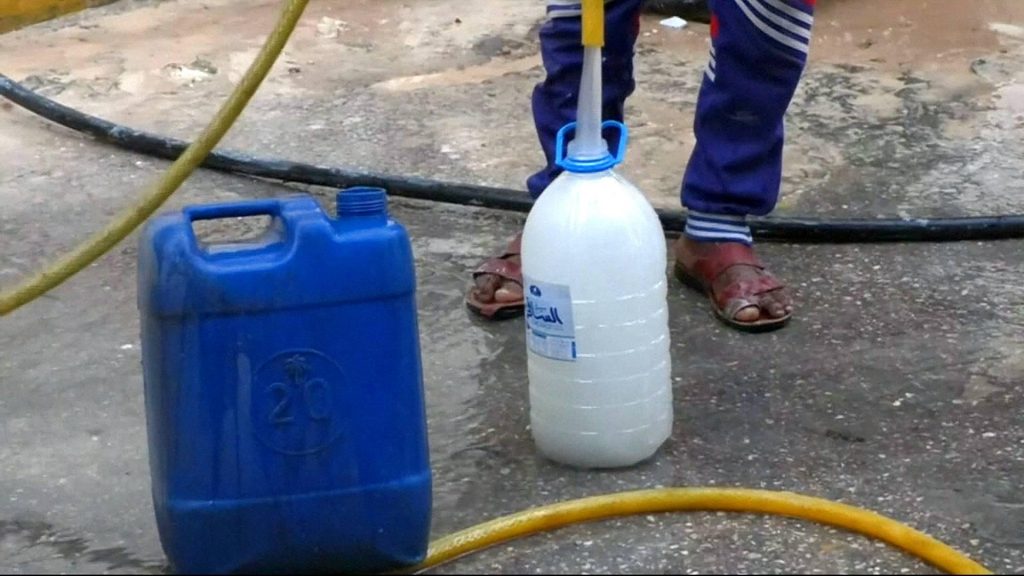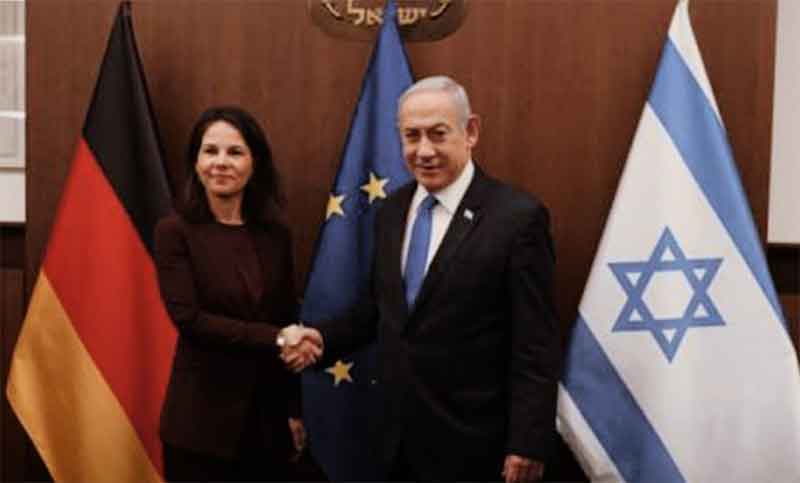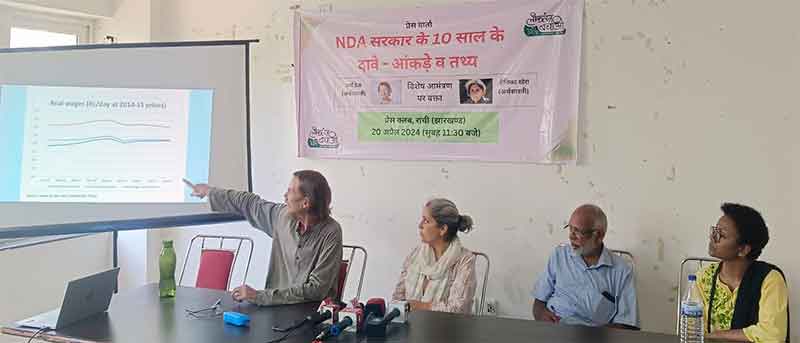
Millions of people are without water in Libya as summer temperatures begin to climb.
Water supplies to the Libyan capital and surrounding cities have been cut off after an armed group stormed a control room.
Media reports said:
The gunmen arrived on Sunday at the control room in Jafara run by the Great Man-Made River project, first commissioned by the former Libyan leader Muammar Gaddafi, which transports water via a vast underground network of pipes from the Sahara into Tripoli, a city of more than 2 million people, and other coastal areas.
The group forced staff to shut down the water pipes connected to underground wells.
The group claimed to be supporters of Field Marshal Khalifa Haftar, the leader of the Libyan National Army (LNA).
Because of the attack, water will not just be cut to Tripoli, but also to Gharyan and some other western mountain cities.
It is not known how long it will take to restore supplies, but the incident underlines the vulnerability of Libya’s civil fabric to a prolonged war. The authority previously warned it was finding it difficult to repair leaks due to the fighting. Libya periodically suffers from water outages.
Haftar’s force dominates the east and south of Libya and has been trying to take the capital from the UN-backed government of national accord (GNA).
The link with Haftar has been disputed, with some claiming the armed group is operating independently and the GNA is making a link to undermine support for the controversial general.
Haftar’s forces have been besieging Tripoli since April 4 with tacit support from countries including the United Arab Emirates, Saudi Arabia and Egypt, but it is generally accepted that the LNA’s plans for a quick victory and the defeat of the GNA have been thwarted.
The agency that oversees the water project, insisted it had never taken sides in the current civil strife but said water supplies should never be used to pursue any interest.
The GNA accused the armed group in coordination with Haftar’s forces of seeking to “lock the water from the capital to lower the morale of its inhabitants”.
It is likely that Haftar will disown the action.
The east and west of Libya have been divided for much of the time since Gaddafi was ousted with the help of NATO-backed forces in 2011.
LNA bans access to Libya’s western ports
The LNA said it has banned access to all western ports in Libya since Sunday evening, a move that aims to prevent a coalition of forces allied with the GNA from receiving arms from Turkey.
The move comes after GNA forces received a shipment of Turkish armored vehicles and arms on Saturday.
The shipment arrived amid the GNA’s efforts to stop the LNA from advancing toward the capital, Tripoli.
“In accordance with the commander-in-chief’s [Khalifa Haftar] decision to cut off supplies for militias in the western region, the chief of staff of the Libyan naval forces, Maj. Gen. Faraj al-Mahdawi, announced the mobilization of all naval forces and announced a complete naval ban on all sea ports in the western region,” the Military Information Division of the General Command of the Libyan Arab Armed Forces said in a statement on their facebook page.
According to the statement, the Libyan army’s naval troops threatened to strike whoever approaches the western zone’s ports “with an iron fist, especially the Muslim Brotherhood’s country Turkey”.
Turkish military vehicles arrives in Tripoli
An earlier report said:
A coalition of forces allied with the GNA, some of which face UN sanctions, received a shipment of Turkish armored vehicles and arms on Saturday.
The shipment arrived amid the GNA’s efforts to stop the LNA.
Pictures and videos posted by the coalition on its Facebook pages showed what appeared to be dozens of Turkish-made BMC Kirpi armored vehicles in Tripoli port.
“The GNA is fostering its forces defending Tripoli with armored vehicles, ammunition, and quality weapons,” the pro-GNA coalition said on one of its Facebook pages, without giving further details about the origin of the military equipment.
The cargo ship “Amazon,” flying a Moldovan flag, publicly unloaded its cargo midday on Saturday at one of the wharfs of the Tripoli seaport. The vessel had sailed from the northern Black Sea port of Samsun, Turkey.
Its cargo included a shipment of around 40 armored vehicles of Turkish origin that came from northern Turkey. These were met at the port by forces loyal to Salah Badi, leader of the powerful al-Samoud militia, which has in the past opposed the GNA and any political solution in Libya. Badi was added to a UN sanctions blacklist last November.
Later on Saturday, there were also reports and pictures posted on the Facebook page of another radical Tripoli militia – the Marsa Brigade – of machine guns, sniper rifles, and anti-tank and aircraft missiles, freshly wrapped in crates, with the suggestion that these had also formed part of the Turkish cargo and had been distributed to frontline militia fighters defending Tripoli.
Turkish drone shot down
Meanwhile, a Turkish drone was reportedly shot down by the LNA last week, leading to warnings from the national army’s leadership that Turkey was sending weapons to Libya.
The UN has been monitoring for an uptick in Turkish military support for Tripoli militias ever since the GNA’s Interior Minister Fathi Bashagha, who founded the Marsa Brigade, made a lengthy visit to Ankara earlier this month.
Bashagha, who is increasingly being seen by GNA insiders as the real power in Tripoli rather than Prime Minister Fayez al-Serraj, is from Misrata – a Libyan city with strong historical links to Turkey.
Earlier this month, a Tripoli government spokesperson said his administration was talking to its ally Turkey to obtain “anything that is needed to stop the assault,” including military and civilian help.
“If correct, this is extremely concerning as it could lead to an escalation of violence and more civilian casualties,” one UN source said.
However, a Libyan media activist based in Turkey who posted pictures of the cargo arriving explained that the move was justified in order for the GNA to “defend themselves against the attack.”
Asked if Bashagha had arranged for the shipment of military equipment, he replied, “Fathi Bashagha has responsibility, but there are other people unknown to the world who are also on the ground.”
The armored vehicles were publicly offloaded in a show of defiance by forces loyal to Badi and displayed on the Facebook page of al-Samoud.
Experts said that defensive military equipment like the armored vehicles could theoretically be allowed into Libya without breaching UN sanctions, but that this would be unlikely given hostilities.
Badi himself was hit by the UN with a travel ban and asset freeze for his role in stirring up violence in Tripoli. The capital was gripped by violence throughout last summer as extremist militias challenged the GNA’s authority.
A statement posted by the British Foreign Office detailing the reasons for his sanctioning said, “Salah Badi… has worked consistently to undermine a political solution in Libya. In August and September 2018, Badi played a leading role in heavy clashes in Tripoli in which at least 120 people were killed, most of whom were civilians.”
Instability in Tripoli and the role of militias backed by Turkey and other countries is one of the reasons put forward by Haftar for trying to take over Tripoli, according to the LNA spokesperson.
Links between the militias in Tripoli to more extremist Islamic groups, such as the outlawed terrorist group Ansar al-Sharia as well as al-Qaeda and ISIS, have also become increasingly apparent in recent weeks.
This week saw the fourth attack by ISIS against the rear guard of LNA forces in the south of Libya, in what US intelligence assessments have suggested might be a coordinated military tactic to hamper the LNA’s bid to take Tripoli, and therefore the whole country.
There have also been numerous reports of extremist fighters joining the effort in Tripoli against Haftar, with some returning from Syria as battle-hardened extremists as a result of the bloody conflict, in which Turkey has been closely involved.
There were also rumors that Zeyad Balaem, one of the leaders of Ansar al-Sharia and the Benghazi Shura Council, which Haftar has battled for the past three years, was injured in fighting for the GNA, or at least against Haftar.
Diplomatic sources briefed on the talks with Ankara had previously said that Turkey was being “sensitive” to NATO and US-leadership opinion against sending weapons to Libya, which remains under a UN arms embargo, and was using the opportunity to seek economic concessions.
A senior Western diplomatic source said it does not appear as if Turkey is at all concerned with “upping the ante and their position with the Americans.”
Haftar in Europe
Haftar is visiting European capitals this week, drumming up support for his battle for Tripoli.
Now, according to a Libyan diplomat with knowledge of discussions between Haftar and the White House, he may be invited to Washington DC, which has publicly shown support for him but has yet to step in militarily in Libya.










































